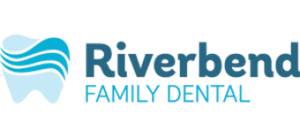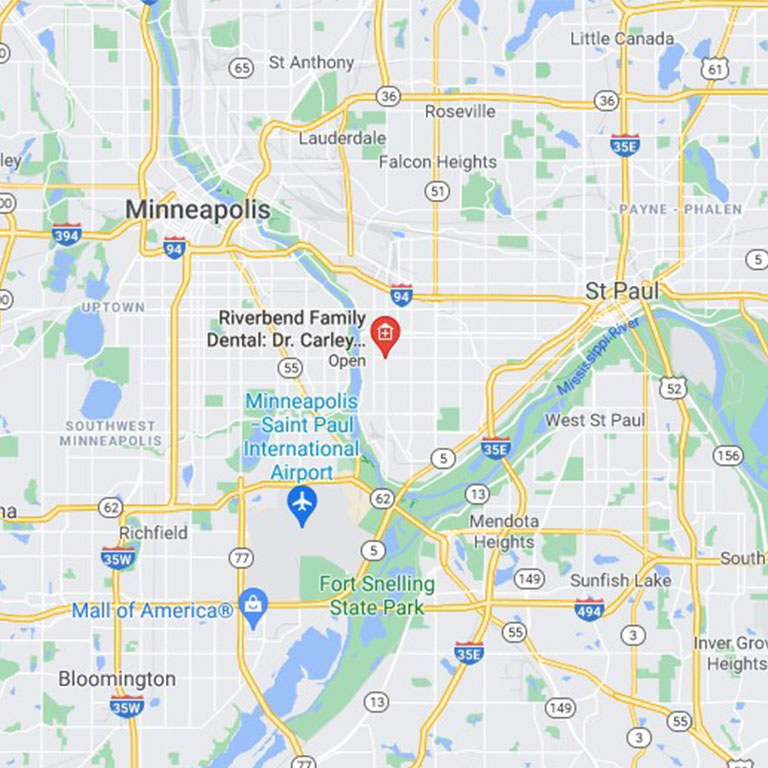Sleep Apnea in St. Paul, MN
Sleep apnea is a common condition, one that runs the gamut in severity. The term refers to an obstruction of air while asleep, with symptoms ranging from sporadic snoring to frequent nighttime gasping.
You may think that a doctor would be the first person to contact if you think you might have sleep apnea, but an oral healthcare provider might be a better choice. This is because these professionals are exceptionally familiar with the muscles and tissues that govern the rules of airflow. They can also tell you the best way to treat it with minimal interruption to your normal nighttime routines.
A qualified dentist can tell you more about the treatments available and why it’s so important to address this disorder sooner rather than later.
What Exactly Is Sleep Apnea?
If you’re looking for a sleep apnea dentist in St. Paul, MN, you should know that sleep apnea is a condition that affects the muscles and tissues in the nose, mouth, and throat. When you sleep, these muscles will relax, which can narrow them to the point of blockage (or at least noticeable restriction).
Because these are the passages that you use to breathe, the result is a disruption of air. In some cases, sleep apnea is a little more than a nuisance, one that can bother a partner far more than the person who actually has it.
However, there’s more than one type of sleep apnea, and the worst forms of it can be deadly. The most common form is called Obstructive Sleep Apnea (OSA), a condition that obstructs airflow completely for a few seconds at a time.
It typically happens several times during the night, which can have an effect on a person’s quality of sleep. If a person doesn’t wake up though, they might just be tired throughout the day without realizing what’s causing the real problem.
What Are the Symptoms of Sleep Apnea?
Symptoms of sleep apnea in St. Paul, MN include the following:
- Snoring
- Suddenly waking up and trying to catch your breath
- Fatigue
- Restlessness/moodiness
- Pauses of breath while asleep
It’s not always easy to diagnose sleep apnea for people who sleep alone. It may not even be easy for people with a partner! Pauses during sleep don’t have to be accompanied by loud, obvious snoring, which may mean that sleep apnea gets no complaints from them.
If you’re feeling tired all day without an apparent cause though, you may need to record yourself at night with equipment sensitive to pick up the subtle variations of the steady in-and-out of your breath. This can tell you more about whether the condition is playing a role in your fatigue.
What Happens in the Body When You Have Sleep Apnea?
This question is linked to the type of sleep apnea that you have. The most common type, OSA, has to do with the general relaxation of your muscles. There’s also Central Sleep Apnea (CSA), a condition that affects how the brain tells the muscles to react during sleep. If there’s a brief pause in the signals, it will result in a pause in a breath. This often occurs only with those who have suffered another condition that affects the brain stem, such as a stroke.
Some unlucky people end up with OSA and CSA, or what’s known as Complex Sleep Apnea. An expert dentist can tell a patient more about the type of sleep apnea they have and what’s causing it.
Who Gets Sleep Apnea?
OSA can happen to anyone, as it can be a hereditary condition. Some people are born with abnormalities in their facial structure or just a tendency to relax the muscles at night, which can impact their breathing during sleep.
However, there are other factors that contribute to all types of sleep apnea in St. Paul, MN:
- Obesity: Obesity results in larger tissues, including those in the neck. This excess can contribute to a blockage.
- Smoking: Smoking may cause inflammation and disruptions to muscle functions.
- Brain/spinal disorders: Whether it’s the spine or the stem, those with brain disorders may be more prone to Central Sleep Apnea or Complex Sleep Apnea in St. Paul.
Why Should You Get Treatment for Sleep Apnea?
Untreated sleep apnea can lead to anything from high blood pressure to insomnia. There are a number of other risks that are linked to sleep apnea, including heart diseases and erectile dysfunction, though these may be caused by other underlying causes (such as obesity).
The biggest reason to seek sleep apnea treatment in St. Paul, MN though, is because the quality of your rest is important. If sleep apnea is standing in the way between you and a peaceful night, there’s no reason to deny your body a chance to rejuvenate!
What Are the Best Sleep Apnea Treatments?
Due to the variety of sleep apnea disorders, your treatment will need to be customized to your condition. Oral sleep appliances available through a dentist, such as a mouth guard or retainer, can be excellent to reposition your soft tissue so it remains open at night. This can be a temporary solution that both improves the quality of your sleep and cuts back on loud noises that a patient might be making at night.
Many people prefer these items as opposed to bulky machines, such as those required with CPAP therapy. (The easier the directions are to follow and the fewer changes to your life, the more likely you are to do it.)
Sleep Apnea Dentist in St. Paul, MN
Sleep apnea can sound a little scary to some people. Because you’re asleep while everything happens, you might be entirely unaware that they have any symptoms at all. The good news is that the right dentist can set your fears to rest and ensure a healthier night’s rest. If you have any of the symptoms of sleep apnea, contact us at Riverbend Family Dental in St. Paul to see how we can help!

1-651-699-3212
241 Cleveland Ave S #D1, St Paul, MN 55105
info@riverbenddentalmn.com
BUSINESS HOURS
Monday: 8:00AM - 4:00PM
Tuesday: 8:00AM - 4:00PM
Wednesday: 8:00AM - 4:00PM
Thursday: 8:00AM - 4:00PM
Friday: By Appointment
Saturday: CLOSED
Sunday: CLOSED
* 7am cleaning appointments also offered Monday through Thursday

